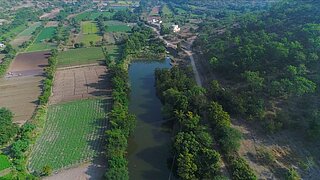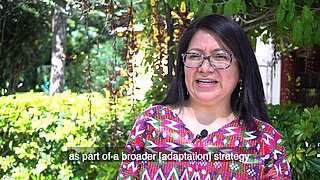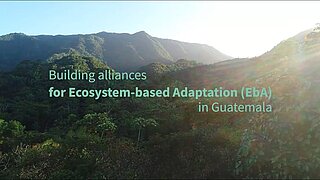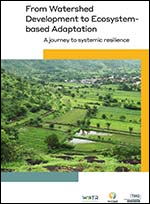Scaling-up Ecosystem-based Adaptation in Guatemala

Guatemala signs a declaration at its first National Forum on Ecosystem-based Adaptation with stakeholders recognizing the urgent need to scale-up nature-based solutions for climate change adaption.
Until now, Ecosystem-based Adaptation (EbA) did not feature on Guatemala´s environmental policy agenda. The recent National Forum on EbA, marks the first time that actors from the government institutions, conservation NGOs, and international agencies come together to generate a common vision for EbA in Guatemala.
EbA – a powerful approach for Guatemala
Guatemala is a megadiverse country that is highly vulnerable to the repercussions of climate change. Unpredictable rainfall patterns, degraded soils and increasing flooding tend to affect the less fortunate in the society more. This is further aggravated by persistent poverty; as Guatemala is one of the countries in the world where poverty has increased in recent years.
On the other hand, EbA is increasingly recognized as a powerful approach that can enhance the adaptive capacity of communities and ecosystems. Many EbA projects are already underway in Guatemala, but these tend to be disconnected. A more coordinated approach is needed to sustainably scale up adaptation initiatives. Recognizing EbA´s potential, Jenny Vasquez Palacios from the Ministry of Environment and Natural Resources (MARN) stated that “EbA is strategic for Guatemala” in the sense of achieving the country´s national development goals, as well as meeting international commitments such as Agenda 2030 (the UN Sustainable Development Goals) and the Paris Agreement”.
Actors recognize the importance of EbA in a signed declaration
During the three day Forum, that was attended with about seventy decision-makers from the public and private sectors, participants exchanged experiences of EbA in Guatemala, discussed the scope and limitations of national adaptation strategies, and financial mechanisms for EbA. They also discussed the possible steps and commitments to upscale EbA; with a key proposal to establish a financing mechanism.
The event culminated in a written declaration that recognized the need to implement EbA on a larger scale in Guatemala and learn from local experiences. The Declaration, signed by the representatives of several ministries, leading environmental NGOs, universities, and UN bodies signatories, committed themselves to strengthen alliances for EbA and create enabling conditions for its national scaling up.
Fostering EbA through new alliances
Building such alliances is at the core of the IKI Project “Climate-SDGs Integration Project: Supporting the implementation of the Paris Agreement and the 2030 Agenda through ecosystem-based adaptation” in Guatemala. It focuses specifically on widening social and political support in order to create an enabling environment for EbA. One innovative aspect of the project was the formation of a Technical Group of key EbA actors in the country. Just as the National EbA Forum and the Declaration have placed EbA on the policy agenda and points the way towards a national roadmap for EbA scaling, the Technical Group will follow up on the inter-institutional alliances and commitments mentioned in the Declaration. This joint effort will be crucial, especially as a new government took office in January 2020.
The Forum and the Declaration are inspiring first steps towards nature-based solutions. However, an effective follow-up will require concrete actions. The new alliances support that this political commitment yields policies and programmes that create the conditions for the upscaling of EbA in Guatemala.
The link has been copied to the clipboard
Contact
IKI Office
Zukunft – Umwelt – Gesellschaft (ZUG) gGmbH
Stresemannstraße 69-71
10963 Berlin










![[Translate to English:]](/fileadmin/_processed_/2/e/csm_17_II_157_Pasabien_watershed__Guatemala__5___c__El_Fassi_4d01bf06a7.jpg)


